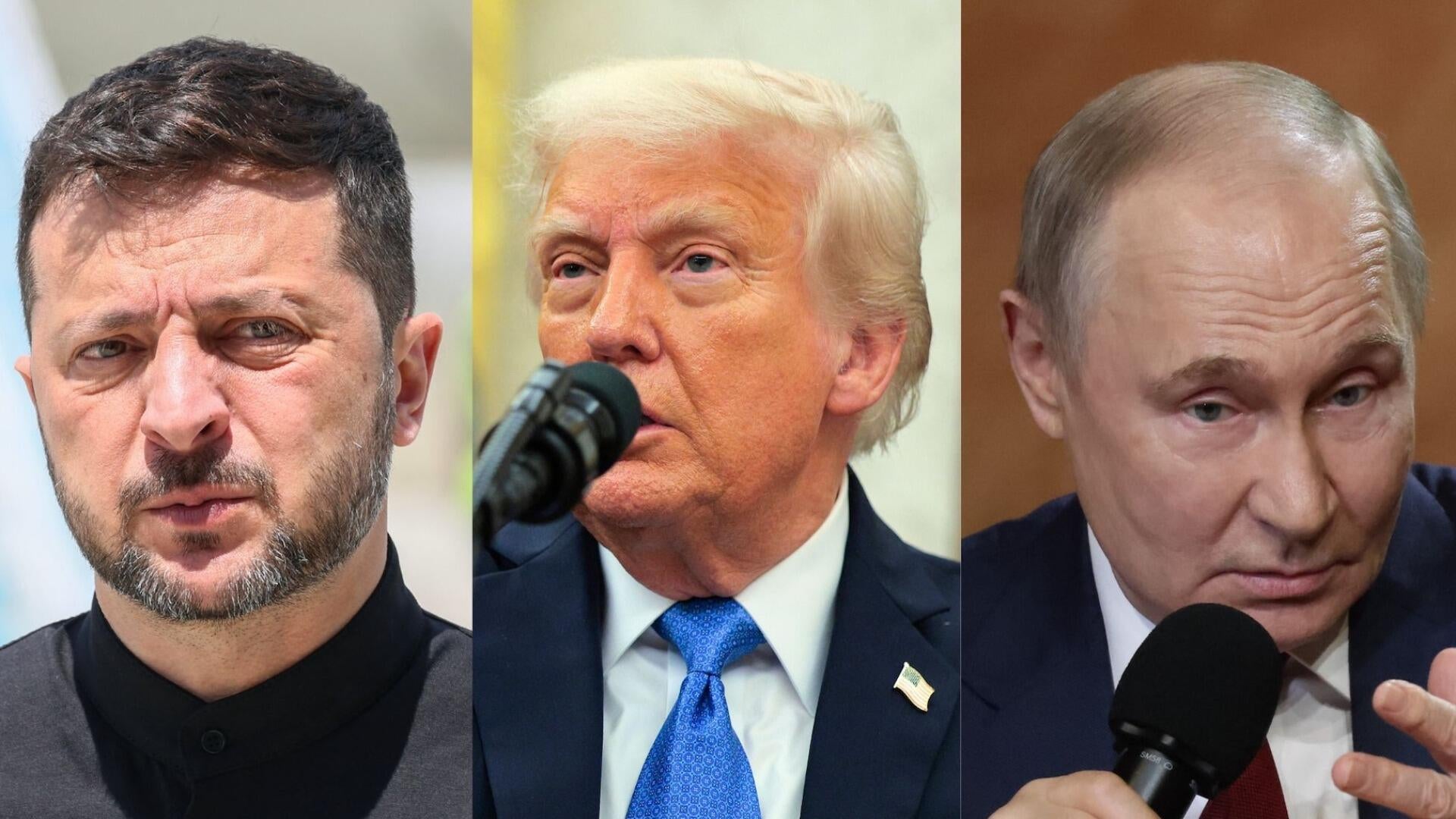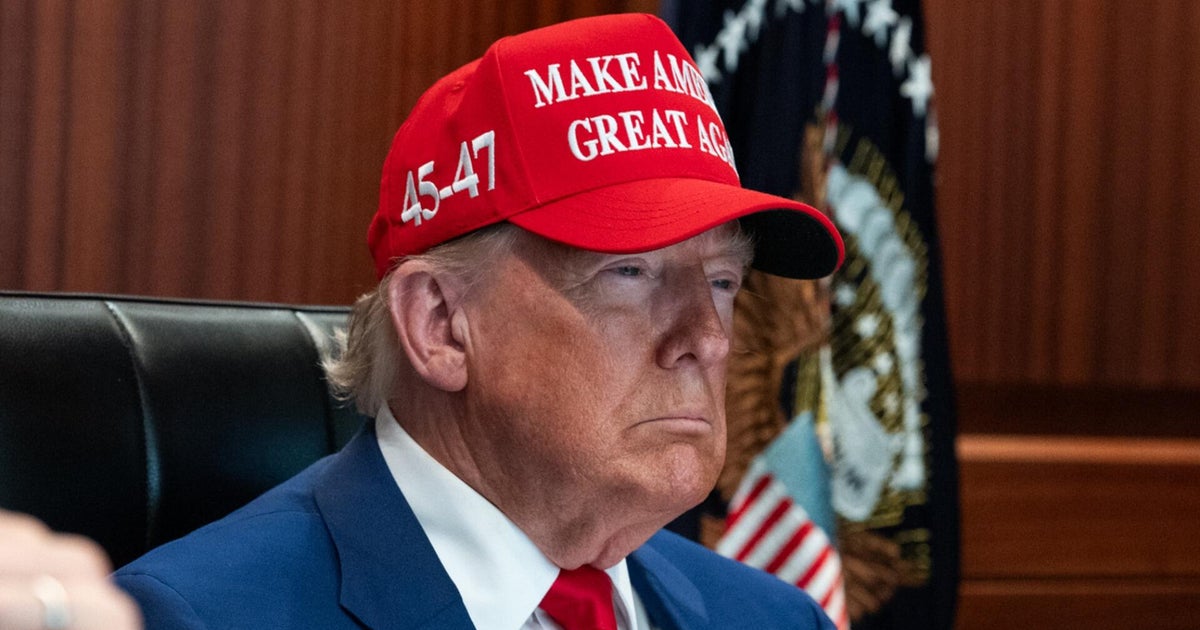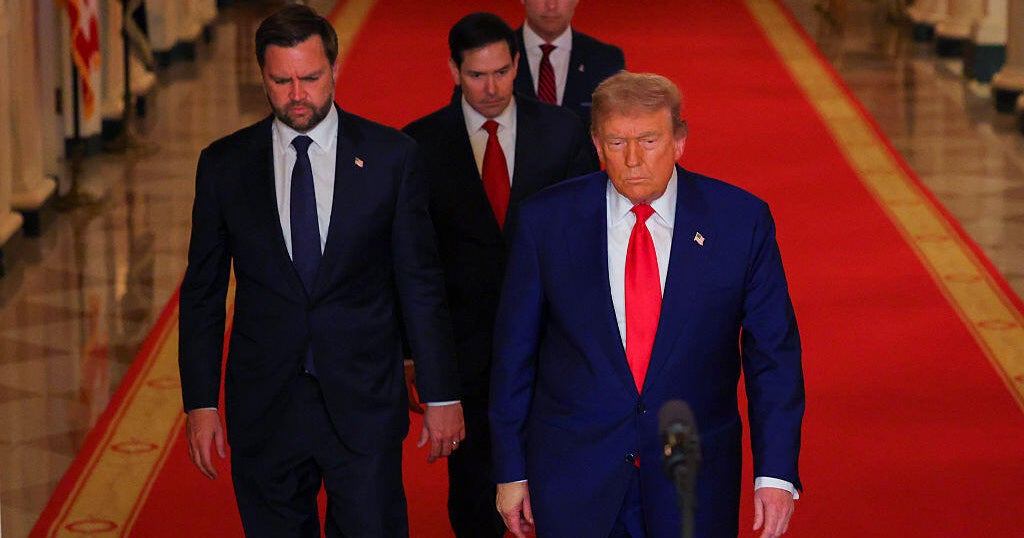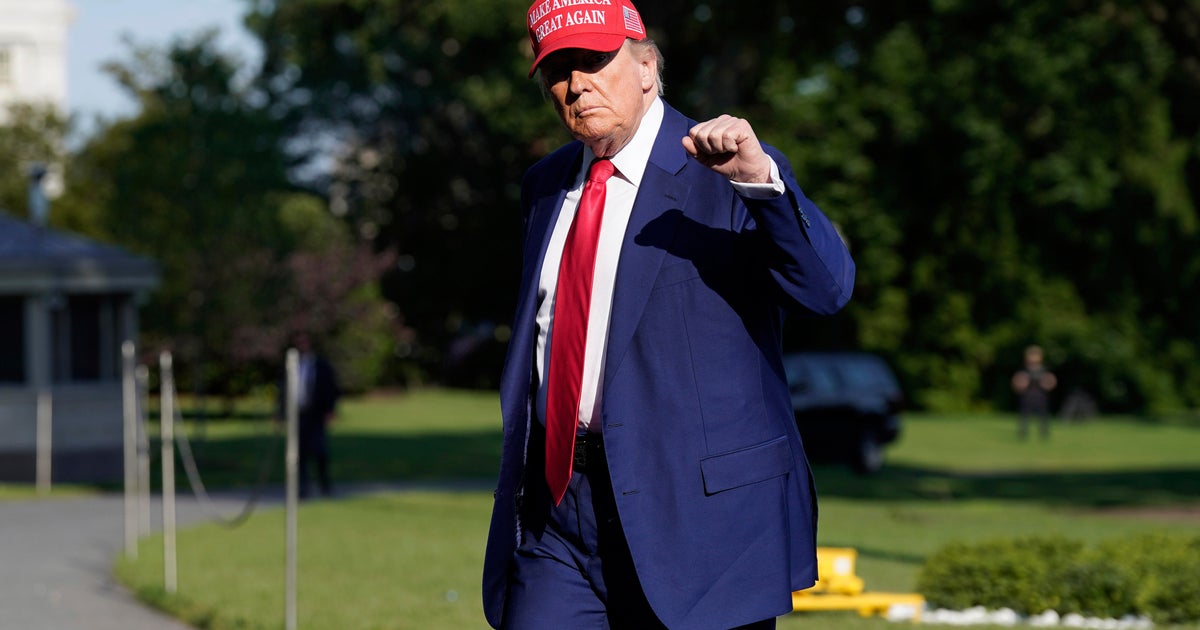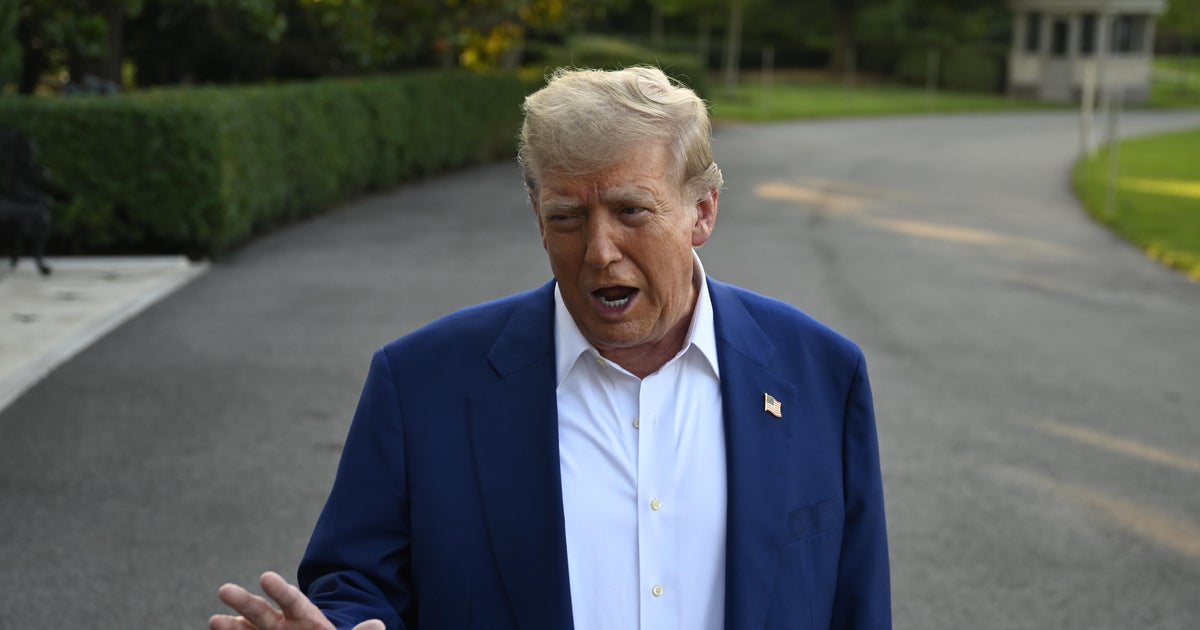Trump attends NATO summit as Iran overshadows agenda
President Trump on Tuesday heads to a whirlwind NATO summit at the Hague, Netherlands, hours after he announced that Iran and Israel had reached a ceasefire agreement.
Several hours after the ceasefire was to take effect, Mr. Trump told reporters as he left for the summit that both Israel and Iran had violated it. Then, after speaking with Israeli Prime Minister Benjamin Netanyahu, the president said Israel would not bomb Iran again, and that "the ceasefire is in effect."
The president hoped to secure during the summit a commitment from NATO allies to spend at least 5% of GDP on defense. But a day before he was to arrive, the alliance had already agreed to the boost in defense spending, according to Matthew Whitaker, U.S. ambassador to NATO. He told reporters in a briefing Monday that as a result of Mr. Trump's leadership, NATO was "on track" to make that "historic commitment" of 5%.
During the flight to the Netherlands, Mr. Trump an effusive note from NATO Secretary General Mark Rutte congratulating him on his actions in Iran and on the new NATO defense spending levels.
"[T]hank you for your decisive action in Iran," Rutte wrote. He called it "truly extraordinary" and said it was "something no one else dared to do. It makes us all safer."
And of the new spending, Rutte said, "It was not easy, but we've got them all signed onto 5 percent!" He called it an "important moment for America and Europe," and told him, "You will achieve something NO American president in decades could get done." A NATO spokesperson confirmed that Rutte had written the text to Mr. Trump.
The U.S. spent roughly 3.4% of GDP on defense in 2023, but the president has said he thinks the U.S. should not have the same 5% target.
"We've been supporting NATO so long, in many cases, I believe, paying almost 100% of the cost," he told reporters Friday. "So, I don't think we should, but I think that the NATO countries should, absolutely."
There is no clear timeline for the 5% commitment, however, and reaching that threshold could extend into the 2030s for some NATO countries, fueling criticism that the 5% promise could be an empty one.
Democratic Sen. Jeanne Shaheen of New Hampshire, who is at the Hague with a bipartisan group of senators, expressed optimism about the allies' efforts to raise their defense spending.
"I think everybody is united around this goal and trying to figure out how fast we can get there," she told CBS News' Ed O'Keefe, who is also in the Netherlands for the summit.
Aside from the conflict in the Middle East, Russia's war on Ukraine continues to be a top topic of concern for NATO members. It is not yet clear whether the U.S. will support language citing Russia as the main threat to NATO in its communique — Whitaker avoided directly answering a reporter's question about this.
"Negotiations regarding the communique are still underway, so I'm not going to be able to comment directly on the specific language," Whitaker said, adding, "I fully expect that the summit statement will be direct, to the point, and reflect the Allies' current threat assessment and the need for collective defense and the individual defense of all Allies."
He said that the U.S. is "calling for restraint and [urging] both parties to avoid escalation," and he went on to say that the U.S. is "engaged at the highest levels" and backs direct talks between Russia and Ukraine.
Shaheen said she'd like to see the U.S. "put a lot more pressure on Russia and Vladimir Putin," and she added, "I think we need to pass the tough sanctions bill that we have in the 365bet¹Ù·½ÍøÕ¾ that has 82 sponsors."
Shortly before the summit, on Saturday, the U.S. carried out strikes targeting three Iranian sites believed to be key to Iran's nuclear program. The move sparked fears of a wider war, but Iran's response on Monday was limited. Iran fired more than a dozen missiles at a U.S. base in Qatar, most of which were intercepted, and no injuries were reported, U.S. and Qatari officials said.
Mr. Trump called the retaliatory strikes "very weak," and he said in another social media post that he wanted "to thank Iran for giving us early notice, which made it possible for no lives to be lost." Iran Supreme Leader Ali Khamenei also pointed out in a social media post after the Iranian strikes, "We didn't harm anyone."
Within hours, Mr. Trump made the announcement that Iran and Israel would implement a ceasefire and shortly bring the war to an end.
will feature a single two-and-a-half-hour session, instead of multiple sessions. Mr. Trump also plans to meet separately with several world leaders on the sidelines, a senior U.S. official told reporters on a conference call Friday.
The president left for the summit early Tuesday morning and returns Wednesday.
NATO, the North Atlantic Treaty Organization, is the largest defense alliance in the world, with 32 members, including the U.S. It was formed in the aftermath of World War II, and has grown since, with its latest additions being Finland in 2023 and Sweden in 2024. Helping Ukraine counter Russia's aggression has been a top priority for NATO, although Ukraine isn't a NATO member.
